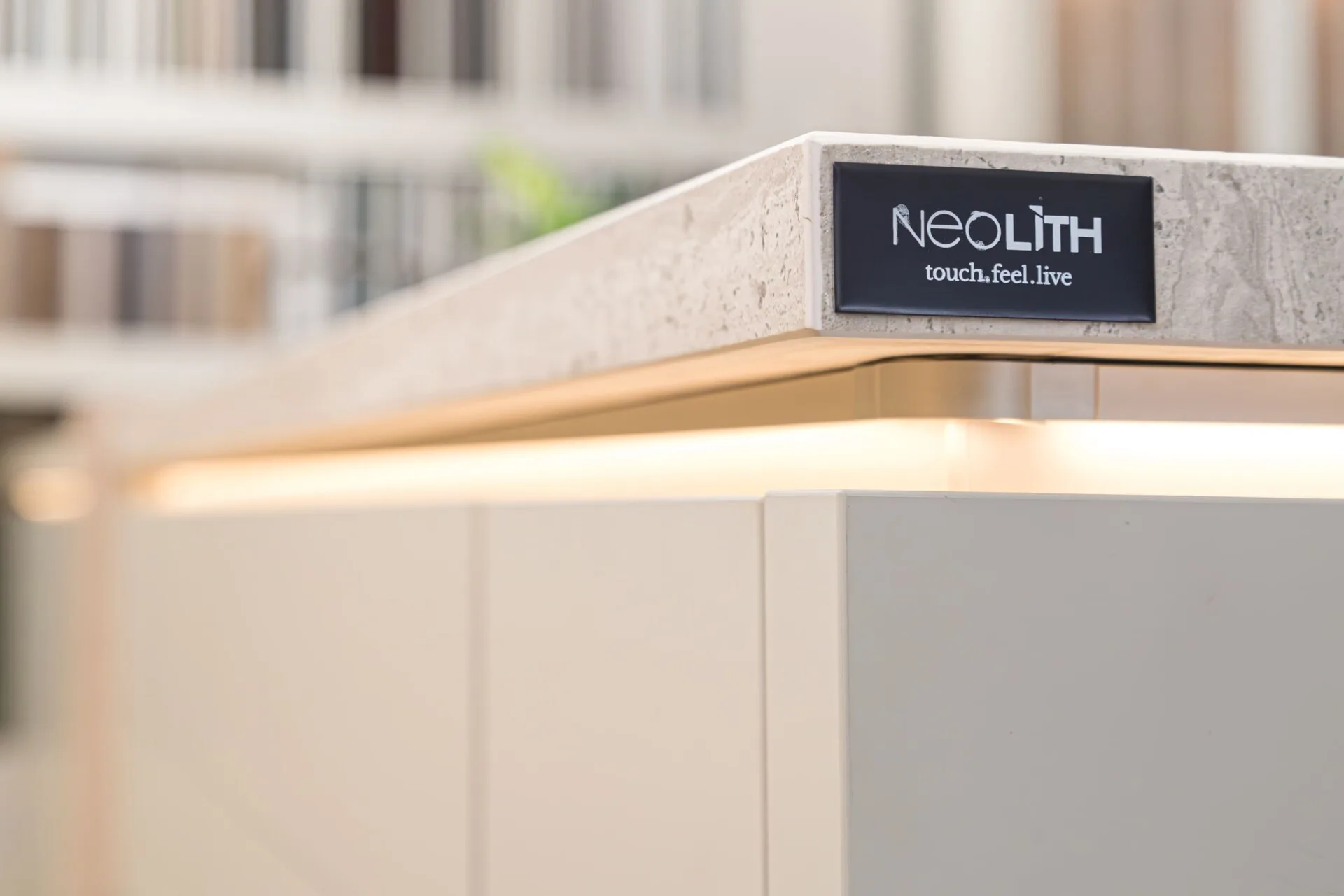The Neolith, it's a product manufactured from natural raw materials such as minerals, clays, feldspar, silica and natural oxides.
It occurs through Sintering technology (Technology that uses a laser to join layers of various materials and transform them into a unique piece), which submits the materials to high pressures and temperatures (more than 1200 ° C). This causes the components to merge, creating an ultracompact, resistant and durable material.
Neolith has gained popularity when installing it on a countertop compared to other materials for the following reasons:
Although Neolith is a highly valued material for kitchen countertops, it also has some disadvantages that are important to take into account before deciding to install it:

| Material | Neolith | Granite | Marble | Quartz |
|---|---|---|---|---|
| Heat resistance | Very high | High | Average | Average |
| Stain resistance | Very high (waterproof) | Medium (requires sealing) | Low | High |
| Maintenance | Very low | Half | High | Low |
| Aesthetic variety | Wide (natural imitation) | Natural limited | Natural limited | Wide |
| Porosity | Zero | Porous | Porous | almost zero |
From Cocinas Plus, our evaluation about the Neolith as a porcelain material for countertops is clear: it is a Premium option that combines technological innovation, aesthetics and functionality, ideal for those who seek a balance between durability and contemporary design.
The Neolith stands out for its extreme heat resistance, scratches and spots, as well as its incomparable hygiene thanks to its null porosity. Its wide range of finishes allows to imitate natural materials such as marble, granite or wood, offering a sophisticated appearance with minimal maintenance. These qualities make it A long -term investment, especially in high -use kitchens where resistance and cleaning are priority.
However, it is not a material exempt from challenges. The high initial cost and complexity of its installation require a careful planning and intervention of experienced professionals. Also, its repair can be complicated if you suffer damage.
Therefore, I would recommend the Neolith to customers who value quality, durability and aesthetics Above all, and that are willing to make a higher initial investment. It is an ideal material for modern, minimalist and functional projects where it is sought to create an elegant and practically indestructible countertop, ensuring a result that lasts over time with minimal maintenance.